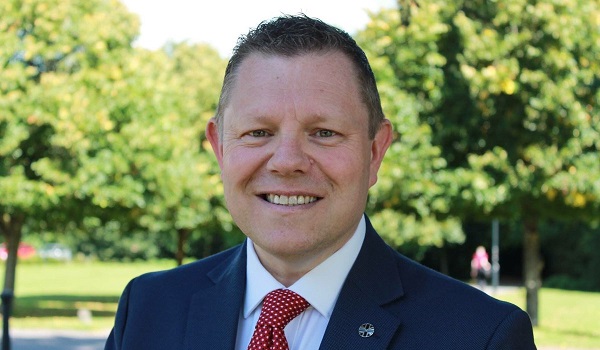College bursary 2020 opens for applications
The College of Policing launched its fifth bursary scheme this week, giving police officers and staff across England and Wales the opportunity to apply for financial support towards their higher education fees.
Since 2016, the college has provided funding to more than 200 police officers and staff from 42 forces, supporting study at undergraduate and postgraduate levels across a wide range of subjects, including criminology, forensics, counter-terrorism, investigation and psychology.
The scheme supports those working towards degrees who have not studied since school, through to those taking PhDs on topics such as communication pathways in control rooms and emergency planning for counter-terrorism.
The College of Policing says it is “committed to supporting the continuing professional development of police officers and staff” and particularly welcomes applications from those working on the front line.
College chief executive officer Chief Constable Mike Cunningham said: “The scheme is open to everyone working in policing regardless of their rank, grade or existing qualifications. To date around two-thirds of bursary recipients have been constables and sergeants, and a quarter were police staff.”
A number of bursary recipients have also used the college’s Recognition of Prior Experience and Learning (RPL) Credit Estimator (https://profdev.college.police.uk/recognition-prior-experience-learning/credit-estimator/) to identify how their learning and experience could be used to gain credits towards academic study. Universities sometimes require candidates to write about their learning from previous courses and policing experience as part of their application for RPL.
A/Detective Inspector Dan McCarthy from Sussex Police, for example, used RPL to reduce his undergraduate degree in Applied Investigation from a three-year programme to just one year. Rather than use the Credit Estimator, he discussed his previous experience as an investigator and the courses he had completed in policing roles with course leaders at the University of Sunderland. He went on to carry out research on the impact of silence on the interviewer in ‘no comment’ or completely silent interviews and explored the psychological impact on the interviewers.
“I contacted the course lead in relation to getting credits under RPL,” explained A/Det Insp McCarthy. “We discussed my qualifications over the phone and they agreed in principle, subject to submitting proof of attendance to courses and qualifications I had received, such as PIP (Professionalising Investigation Programme) accreditation, and interviewing courses.”
The college said the scheme meant March was obviously a busy time of year for its staff and bursary applicants alike. “Over the last three years we have received nearly 600 applications and have awarded just over 200 bursaries, making the scheme very competitive,” it added.
“Previous bursary recipients can also apply for a second round of funding to support longer programmes of study. Sergeant Lorna Dennison-Wilkins from Sussex Police, for example, received further funding last year to continue her doctoral studies into body recovery from water.”
Bursary recipients
Police Constable Emma Pragnell, a forensic collision investigator from Hampshire Constabulary, is in her second year of a Master’s programme on Ergonomics (Human Factors) at the University of Derby. PC Pragnell completed a Foundation Degree in policing studies in 2011 and became interested in the Master’s course after doing some mandatory CPD (continuing professional development) for her role, which included a short section about the human factors that impact on driving, such as inattention and unintended acceleration. Finding that there was not much published research on factors causing pedal errors with drivers, PC Pragnell decided to focus on that area for her own research.
The early benefits of her course have already been clear. She has been able to apply her learning to a number of collision investigations. For example, using the psychology component of her course has helped her to understand how drivers may misjudge speed when pulling out of a junction. PC Pragnell has passed on her research knowledge about the human factors that influence road traffic incidents to the rest of her team. The support of her team and line manager has been an important factor for her in managing her studying while working and she advises bursary applicants to seek help from managers at an early stage. “Give yourself time and make sure that you’ve got the support around you before you apply. Speak to your line manager and get them on board,” said PC Pragnell.
Police Constable Maciej Matusiak is an example of how for many, bursary-supported study has been their first experience of higher education. He joined Merseyside Police at the age of 30, having finished his studies at the age of 18 in Poland. PC Matusiak received a bursary in 2018 for the final year of a BA in Policing Studies at Liverpool John Moores University. He says that studying was very hard at the beginning, particularly as he was writing in a second language, but he stayed motivated and managed to fit studying in around shifts and family commitments. PC Matusiak’s dissertation research focused on domestic abuse in the Polish community and involved analysis of domestic homicide reviews of Polish nationals in the UK.
He has been particularly active in disseminating the findings of his research, with a view to influencing practice, including the way in which the Home Office captures homicide review data. PC Matusiak says that in sharing his research findings, he feels he is “keeping the memory of the dead alive and giving them a voice”. Using the university’s RPL scheme, PC Matusiak completed his studies in two years instead of three, which also reduced his tuition fees significantly. “If you’re considering applying for the college bursary, instead of thinking about it, just do it, otherwise it’s a wasted opportunity,” said PC Matusiak.
To help people apply for the bursary scheme the college has an ‘Information for applicants’ page (https://whatworks.college.police.uk/Support/Pages/Bursary20_application.aspx), which includes the application form, guidance on completing the form, frequently asked questions and monitoring forms.
“We have also added some tips for applying from previous successful bursary recipients,” said the college. “We will be sharing more tips from successful applicants throughout March to coincide with the application period.”
Twitter users can follow @CollegeofPolice for these tips. The deadline for applications is Monday, April 6, 2020, for funding for the academic years 2020/21 and 2021/22.
Applications and enquiries should be sent to bursaryscheme@college.pnn.police.uk.







